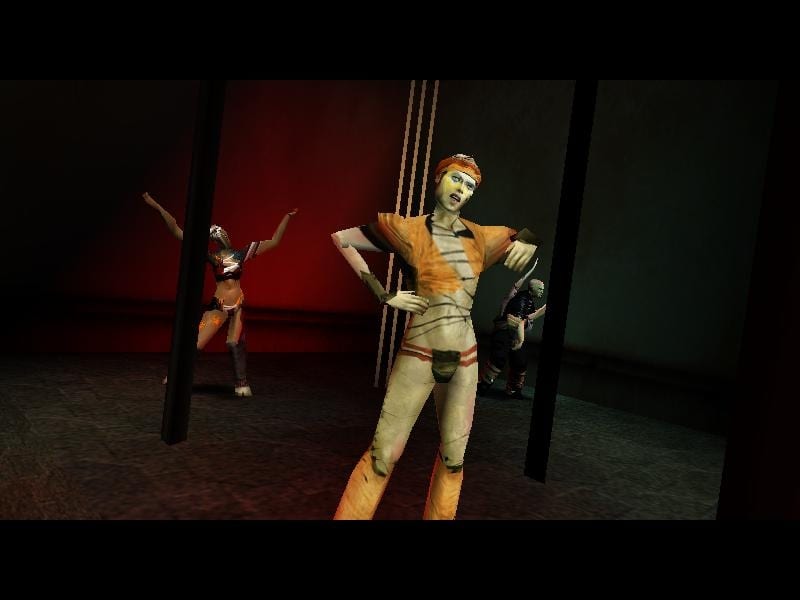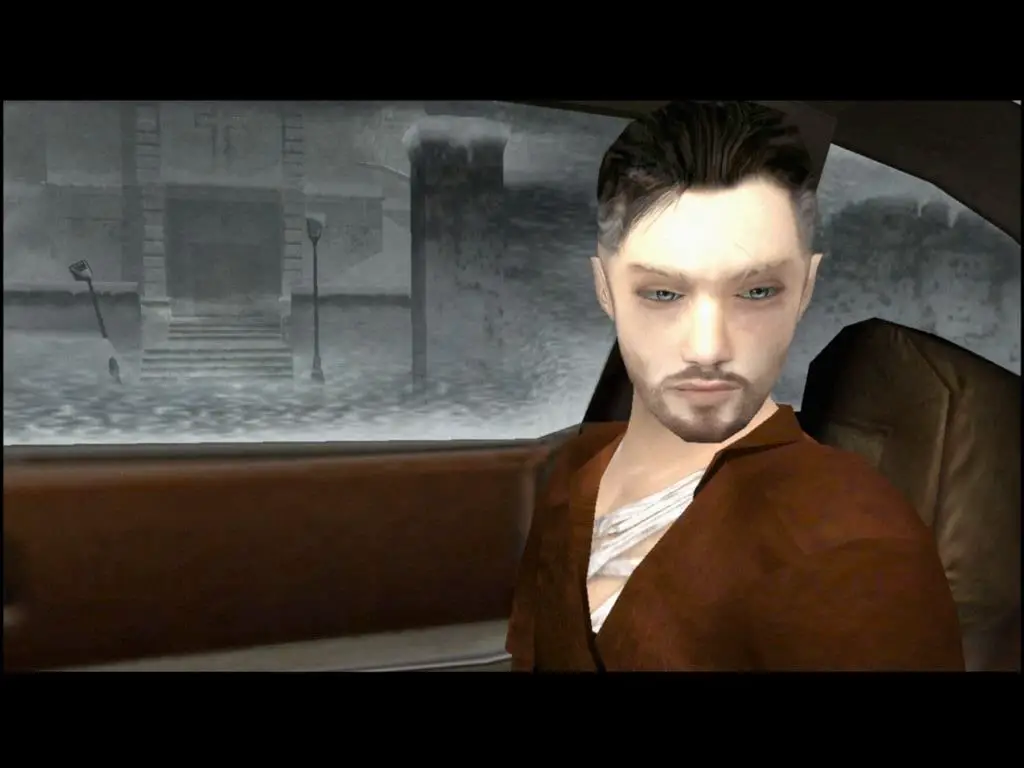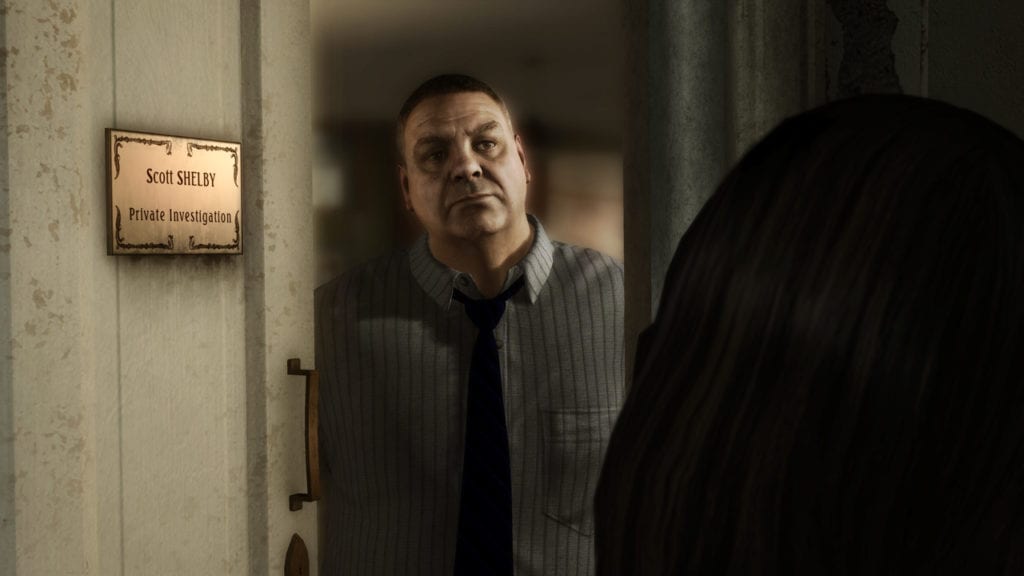Warning, this article includes frank discussion of non-consensual sex. Also there are spoilers for the entire gaming library of David Cage, though honestly, being spoiled now is better than having to play the things.
It should also be noted that this is an opinion piece based on the subjective views of the author.
The obvious implication of any piece of work not based in a scientific realm is that it is the product of the writer’s own opinions and interpretations. Only someone criticizing in serious bad faith would ever jump to the conclusion that any given writer believes their opinions are unimpeachable facts. In almost all cases, it is unnecessary to point this out.
This is one of the exceptions to this rule. Usually when pointing out problems within video game narratives, the blame is laid at the hands of the developing company at large, as individual responsibility is very difficult to divine. In the case of David Cage games, however, the director’s self-proclaimed auteurship means it is only he who the finger can be pointed at.
In which case it is necessary to point out that the following arguments are entirely my own opinion, that I have never met David Cage, that it is entirely possible that I am wrong and that arguments to the contrary are welcome. This should in no way be read as anything other than a personal interpretation based on a familiarity with Omikron, Fahrenheit, Heavy Rain and Beyond: Two Souls.
With all that said, David Cage games consistently feature weird and terrible sex scenes.
Mr. David Cage
For those unaware of who David Cage is, here is a brief history lesson. Cage is a French game developer who founded the company Quantic Dream, currently employed to make exclusive titles for Sony. He has directed four games in an almost twenty year career, with the fifth due to be released in the near future.
Cage is a champion of the gaming auteur, namely the concept that games should be made by a singular vision rather than by committee, as having a singular director will lead to stronger artistic works. It is an admirable development philosophy, and Cage is one of the few directors in gaming with enough clout behind him to make the games he wants to make.
Aside from his first game, his works have trended towards creating ‘cinematic’ experiences. Complicated gaming mechanics are shunned in place of simple button prompts, with the focus on emulating motion pictures as much as possible. Running away from the conventions of the medium seems a rather wrong-headed approach, but given that the phenomenal Until Dawn follows a similar template to Cage games, it is not an approach without some merit.
The real problem, in my view, lies in the fact that Cage seriously struggles to write coherent stories. He comes up with good ideas, and most of his games start with promise, but they invariably collapse due to his seeming inability to gel ideas together and maintain even vaguely coherent character motivations. For reference, follow this link to read about the insane plot holes in Heavy Rain, easily the best game Cage has made thus far.
Given that three out of his four games are pretty appalling (and Heavy Rain is a mixture of good and bad so potent it is rendered entirely mediocre), his continued success is quite baffling, but that is neither here nor there for this discussion. The point here is to talk about the sex in Cage’s games, because here lies one of the more unexplored aspects of Cage’s writing failures.
By the way, the header image of this article is of David Cage appearing in one of his own games. Just in case you needed more evidence that this man makes poor design decisions.
The Villainous Soul
Omikron: The Nomad Soul (Cage loves colons in his titles) was the first game produced by Quantic Dream. Released in 1999, it bears the odd distinction of both featuring David Bowie and being one of the worst designed games in history.
Upon beginning the game, the player is greeted by Kay’l, a detective who implores the player to take over his body to help solve a murder (and eventually save the world). Two things are important to note about this set-up.
- You literally play as a soul that hops from body to body as it attempts to achieve its goals.
- When you occupy a body, the owner is not killed. They are entirely conscious of everything you are doing with their body, but are entirely powerless to stop you from doing whatever you want.
Among the very first things it is possible to do in this game is to go to Kay’l’s apartment, talk to his wife, and subsequently sleep with her. While this is an optional part of the game, given that it is triggered by simply talking to Telis while she is lying on a bed, most gamers are likely to wind up doing this.
The problem lies in the fact that Telis is not consenting to have sex with you, the player, she is consenting to have sex with her husband Kay’l. She is unaware that her husband’s body has been taken over by a rogue soul (and she will not believe you if you tell her, because why would she, that is insane). You are hijacking her husband’s body to sleep with a woman who is denied all opportunity to consent, and would almost certainly not consent if she was fully aware of the situation.
This is non-consensual sex, in the same way that pretending to be someone’s husband at a masquerade ball is non-consensual. In fact, it is actually worse than that, as Kay’l himself is a witness to this heinous crime and is powerless to prevent it. This is horrifying in all respects, especially given that these are the actions of the game’s hero.
And the Nomad Soul will always be categorized as a hero, despite the many heinous acts they commit. At one point you will force one of the bodies you pilot to kill itself in order to trick another person to surrender their body to you. All this occurs so that you can move a rock out of the way of a door, which you really could have just asked the other person to do in the first place.
It is possible (and indeed preferable, because the alternative is way worse) that Cage simply did not recognize how horrifying he was making his main character’s actions. Mind-invasion, however, is just the beginning of Cage’s game’s bizarre attitudes towards sex. These games have been plagued by some very creepy things for years.

To Love a Living Corpse
Side note: A quick Google search revealed that is apparently legal to marry a dead person in France. This was not the answer I was expecting to find when I searched “Is Necrophilia illegal in France” in order to set-up a snarky joke which would now fall very flat.
Fahrenheit/Indigo Prophecy (it was called one or the other depending on localization) was the second Cage game. Protagonist Lucas Kane commits a murder while possessed by a supernatural force. He attempts to evade the capture of detective Carla Valenti while an apocalypse looms involving Mayan prophecies, Artificial Intelligences, mute children of destiny, a secret organization of homeless people, military conspiracies, and flying Kung-Fu battles. There is also a scene where Lucas is attacked by his furniture. This is Exhibit A of Cage failing to mesh ideas together, but I digress.
Lucas dies in the closing hours of the game, only to be mysteriously walking around again two scenes later. He convinces Carla that he is innocent due to mind-invasion (Cage circa 2005 realizing that mind invasion is a bad thing). They subsequently fall in love, off-screen, despite Carla spending 90% of the game convinced that Lucas is a crazed murderer. They consummate their love in an abandoned train car.
Remember a moment ago when you learned that Lucas died? Yes, Lucas literally died, and was re-animated due to some supernatural shenanigans. The game goes to great lengths to spell out the fact that Lucas is absolutely still dead. A character actually says:
“You didn’t survive that fall. We found your body and we resuscitated you. The truth is that you are dead Lucas.”
They then go on to say;
“It is impossible to kill you Lucas, as you are already dead.”
Lucas is a corpse. He and Carla sleep together at least several days after his death. Yes, he still thinks and moves around, but a magical A.I. states several times that he is dead, so he must be viewed as such. There are two possibilities as to why this occurs in a story written by a human being that undoubtedly wanted his story taken seriously.
- He wrote himself into a corner regarding Lucas’ death, and decided to proceed with his already planned love story regardless.
- This was an elaborate attempt to include necrophilia into a story in way Cage viewed as palatable.
Honestly neither would be surprising to me. Whatever the reason, the fact remains that Cage’s first two game feature their ‘heroes’ engaging in non-consensual sex and necrophilia. Yet both games were somehow critically lauded upon release and Cage was granted bigger budgets to keep making games.

Heavy Pain
Heavy Rain, though frequently cheesy, poorly paced and ultimately insubstantial, is easily the best game Cage has ever made. Indeed it was his first game to not involve his heroes committing illegal and immoral sexual acts. The incredibly low-threshold of both parties being both consenting and alive is at last reached at the third time of asking.
That is not to say there is nothing wrong with the sex scenes found in Heavy Rain. Aside from being aesthetically horrifying, the two most prominent sexual encounters in the game are unsettling due to the wider context of the plot.
The fact that Ethan Mars could possibly decide to engage in some tomfoolery during an intense few days in which his son has been kidnapped by a notorious serial killer—who Ethan knows has put his son in a pit that is slowly filling with rain water and is currently forcing Ethan to under-go Saw style torture games to prove his love for his son—is absolutely insane. Ethan has just hours to save his son. He would realistically never waste time sleeping with a women he barely knows, and yet Cage made sure to include this as an option.
It is also possible for Scott Shelby, a private-eye investigating the serial killer, and Lauren Winter, the mother of one of the serial killer’s victims, to end up in bed together. This is the first such encounter in a Cage game that actually makes plot sense, as their mutual trust and affection is well-established throughout the game. It is honestly nice to see two sympathetic characters find some happiness with each other.
Or rather it would be, if Scott Shelby was not dramatically revealed to be the serial killer all along in a twist that is famous for undermining an otherwise passable plot. Which means Lauren unknowingly slept with the man that murdered her son. DAMMIT ALL DAVID CAGE WHY DO YOU KEEP PUTTING THIS STUFF IN YOUR GAMES.
Earlier when I stated that the sex scenes were at least not illegal and immoral in this one, I meant to say that they were not both. Deciding to sleep with a woman whose child you murdered is pretty much the safest thing one could ever refer to as being immoral.

Now, on to the big question.
OH DAMMIT ALL DAVID CAGE WHY DO YOU KEEP PUTTING THIS STUFF IN YOUR GAMES?
Titillation.
This is the only reason that makes sense for any of the sex scenes in David Cage’s games to exist. He can argue all he wants that he includes them to further the emotional development of the story, but it is hard to get away from the implication that this is all for titillation’s sake.
Did you know that Carla Valenti once appeared naked in Playboy in an image produced by Quantic Dream? Or that Cage’s three most recent games all feature shower scenes that serve no purpose other than letting the player gawk at the female character models? Or that a nude model of Ellen Page was created for Beyond: Two Souls, despite Ellen Page having a no nudity clause in her contract? And that said model was quickly leaked onto the internet (as it was never actually taken out of the game and some very minimal hacking could reveal it)?
These actions combined provide pretty damning evidence that titillation is the main aim in all cases. Which is not necessarily a bad thing in all circumstances, but certainly is when the supposedly titillating scenes involve mind-invasion, corpses and the looming spectre of child murder. When the intent and the result are combined, imagining the process in which one led to the other is a very scary prospect.
(And as a quick side-note, David Cage collected a folder of pictures of Ellen Page ranging from when she was eight years old to her as an adult. He did this before he had ever met her, before she had any idea he wanted her to star in Beyond: Two Souls, and he is proud to tell the world that this is a thing he did. In the context of the rest of this article, this is rather concerning).
Final Disclaimers
Each and every one of my conclusions are entirely based on my own opinions. Each and every one might be entirely incorrect. There may be a perfectly reasonable explanation for all of this. No one is suggesting that Cage himself has ever done anything illegal or immoral.
The only thing being suggested is that David Cage’s games frequently feature sex scenes with hideous implications. By all means argue against this conclusion in the comments. If there is a defense of this stuff, I would gladly hear it. This is one of those times where being wrong would actually be a weight of my mind.
Either way, though, David Cage is bad at making games. That much cannot be argued.

